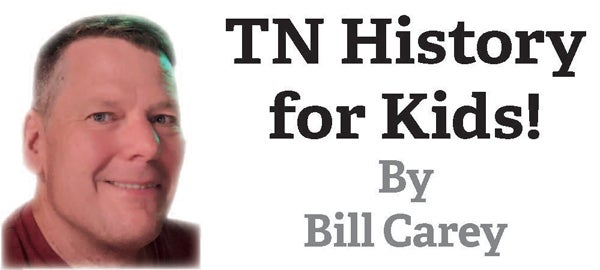They still make pencils in Pencil City USA
Published 11:10 am Tuesday, February 15, 2022
|
Getting your Trinity Audio player ready...
|
I had my notebook open and pencil in hand not long ago, trying to come up with an idea for a new column. I suddenly realized it was right in front of my face.
You see, it wasn’t just any pencil. Tennessee History for Kids once ordered several boxes of burnt orange writing utensils from the Musgrave Pencil Co. They have the Tennessee History for Kids emblem on them, along with the words “This pencil manufactured at Musgrave Pencil Co. in Shelbyville, TN.”
The pencils have proven to be a great gift for teachers, who have a constant need for them. And they have turned into a history lesson in their own right.
Shelbyville’s Musgrave Pencil Co. was founded in 1916 and has been owned and operated by the same family for five generations. Although the pencil business isn’t what it once was, Musgrave continues to produce a good product, employ people and contribute to the economy of Bedford and surrounding counties.
Musgrave is also all that is left of Shelbyville’s nickname. In the 1950s, Tennessee Governor Buford Ellington declared the Bedford County seat “Pencil City U.S.A.” because, at that time, there were half a dozen pencil factories in or near there.
Why? The original reason is linked to the natural products of the central basin of Tennessee. Bedford, Maury, Williamson and Wilson counties have lots of “red cedar,” or juniper trees (if you don’t believe me, go for a hike in Cedars of Lebanon State Park). In the late nineteenth century, many of these trees were cut down by small farmers and used for fencing.
When originally started by Colonel James Musgrave in the early 1900s, Musgrave was a sawmill whose main business was cutting some of these old fence posts and sending them to German pencil manufacturers. (A large part of the business was bartering with farmers and installing new wire and pole fences on farms to ensure a constant supply of wood.) When the U.S. entered World War I, the federal government banned exports to Germany, and Colonel Musgrave began making pencils. The success of his venture led to the creation of other Shelbyville pencil companies.
As the years went by, the business became more complicated. Pencils went from being one color (yellow) to being many colors. Companies began to special order pencils, or to use pencils as advertising media. Pencils began being sold in back-to-school kits.
Meanwhile, the supply of old fence posts in Bedford County was depleted. In the 1930s Musgrave began using California Incense Cedar wood from the far west. Nevertheless, Middle Tennessee’s pencil industry continued to thrive, in part because of the wonderful railroad connections.
On a recent tour of the Musgrave Pencil Co., the nice folks there showed me some wonderful old photographs of the pencil factory from back in the old days. Also in the mix were some pictures of the old company store, where employees bought groceries.
“The store operated on credit, and my employees would get paid the amount of money that they earned minus what they had bought at the commissary,” says Henry Hulan III, former president of Musgrave Pencil Co. (and the grandson of Colonel Musgrave). “The company was the center of the world for the people who worked for it.”
The world has changed a tremendous amount during the last quarter century. Today Musgrave is the only pencil manufacturing operation in Bedford County and one of the last pencil manufacturers in the country. Since large discount chains such as Wal-Mart, Target and Office Depot primarily sell pencils made in China, Musgrave focuses on special orders — such as the pencil I’m writing this sentence with. For a Tennessee not-for-profit organization that caters to teachers, it’s a good freebie.
Finally, here is one more tidbit about the Musgrave Pencil Factory: On a recent episode of the TV game show Jeopardy!, this was the clue:
“A century ago in Shelbyville, Tenn., aka ‘Pencil City’, the Musgrave Pencil Co. began using Tennessee red this fragrant wood.”
I’m not going to tell you the answer to this Jeopardy! clue. If you’ve been paying attention, you’ll know. But don’t say the answer — write it down. You know, with a pencil.





